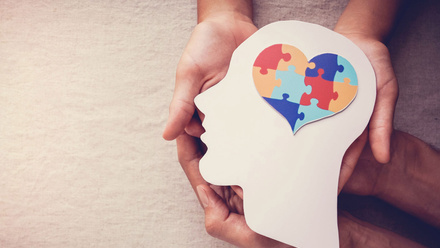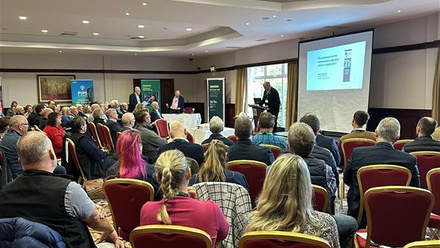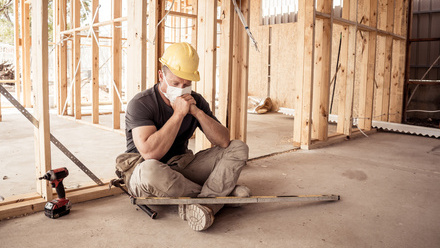*Content contributed by SafeSite Facilities.
A report published in May 2020, revealed extremely poor levels of mental health in the construction industry.
The report surveyed over 2,000 construction workers from across the globe with many revealing they had experienced high levels of stress over a protracted period of time. Even more worryingly a number of people reported that they had contemplated suicide in 2019.
The professional body has since been invited to join the EU’s Horizon 2020 project – Mental Health Promotion and Intervention in Occupational Settings (MINDUP). This project has been set up to specifically target SMEs in the construction sector to combat mental health issues faced by those working in the industry.
Like many organisations, a large percentage of our work force has been home-based during the coronavirus pandemic. Focusing on our employees’ health and wellbeing has become even more important during this time, including how to spot the signs of poor mental health and how to help staff manage it effectively.
Research tells us that the construction industry can be a high-pressure sector to work in, and one where people can be more likely to experience work-related stress. We also know that it can be a challenge for workers in construction to come forward, ask for help, or invite to invite a colleague to speak out.
Employee mental health was has been at the forefront of a lot of the challenges our staff have faced during the pandemic. We wanted to ensure we were doing everything possible to provide our employees with the right kind of support.
Previously, we would share resources such as links to national helplines but the feedback we received from staff was that they were struggling to access proper ‘hands on’ support. We also learned that some line managers were feeling personally responsible for finding colleagues the correct, professional help, which was causing them undue stress. In some cases they did not feel qualified to offer the right support to staff who struggling with their mental health and they themselves were getting worried in case they ‘got it wrong’.
The uncertainty of what was happening day to day, and especially during the first lockdown has put a huge strain on everyone. The pandemic has also exacerbated and brought to the forefront underlying issues and vulnerabilities that some people may have been dealing with for a while. We have seen staff dealing with the breakdown of their relationships. We have also seen staff trying to manage significant health issues – either for themselves or family members - from the knock on effect of delayed access to care that we have seen throughout the pandemic.
As a company we were helping our customers to tackle the physical threat of Coronavirus, supplying them with social distancing safety barriers and portable hand sanitisation stations. However, we quickly realised it was equally important to look after our workforce’s mental health and wellbeing as the organisation – and industry – adapted to new ways of working.
All of these factors led us to seek out an Employee Assistance Programme (EAP). After researching the market, we selected a comprehensive package of help, information and training, which includes home life support, work life assistance, mini health checks and self-help programmes, among other options. There is also a free confidential 24-hour helpline and staff can access bespoke wellbeing features through a handy app.
Since implementing the EAP earlier this year, the feedback we have received from staff who have used the service has been overwhelmingly positive.
Despite some of the practical benefits that home working has realised for our staff who are on the road, such as reducing staff travel and optimising digital site surveying tools, many office-based staff found being at home an isolating experience. The EAP has provided them with a direct line to specialist support. We’ve also found that as soon as we were able to get people back in the office and back on site again, most jumped at the chance to get ‘back to normal’.
Crucially, the construction industry is now starting to see workers’ health and wellbeing as a priority. There is more help, more information, and more training available to raise awareness about mental health, to teach people to recognise signs that colleagues might need some support, and to help them get that conversation started.
*Disclaimer: This blog post is contributed content, which is independent of the FMB. Publication does not constitute endorsement or recommendation from the FMB.






